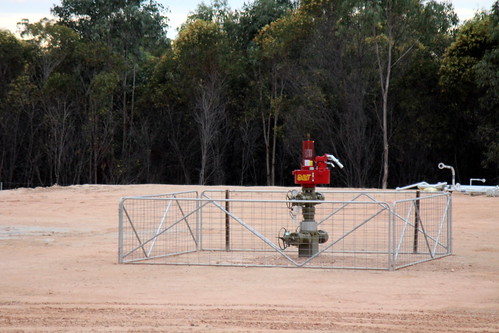Tara Gas Hub QLD pictured.
2) Are tabletop exercises (discussion-based sessions) for emergency situations held? How often?
3) Have local first responders attended a training session?
4) Have first responders visited a well site, compressor station, and processing plant?
5) Do all first responders know where pipelines are located and at what PSI they operate?
6) Are training's paid for by the natural gas companies or by tax payers?
7) Do tax payers pay for the Local Emergency Planning Committee (LEPC)?
8) Are Hazardous Material Emergency Response Preparedness Reports public information? Where can one access them?
9) Do LEPCs have access to proprietary chemical information at every site? Is this information communicated to local first responders?
10) What can you tell us about the local emergency plans?
11) What hospitals/schools/daycares are within a 2.5 km radius of each drill pad, compressor station, processing plant? Do you have contact information for all?
12) How would you conduct an evacuation at a school or hospital in our community?
13) Is there sufficient transportation to conduct an evacuation?
14) What is your method for disseminating information to residents should an evacuation be necessary?
Emergency preparedness and response is an obvious necessity for residents living near wells, compressor stations, and other activities related to unconventional oil and gas development such as fracking. An emergency situation arising from a spill, explosion, or other crisis can impact health, threaten natural resources, or require evacuation.
Because many such operations are located in rural locations, emergency responders and residents may encounter special challenges when responding to emergencies. Potential problems include inadequate communication with residents, insufficiently trained first responders, and lengthy response times as communities wait for out-of-country well-fire specialists to arrive - note that UK does not yet have such specialists.
Residents are also encouraged to contact their local emergency services and attend Local Emergency Planning Committee (LEPC) meetings. In addition to holding public meetings, the LEPC should be responsible for coordinating training for first responders and for providing information about hazardous chemicals being used in the community (though many chemicals used in fracking are protected as private information and not publicly available).
IF WE GENUINELY DO HAVE "GOLD STANDARDS" IN THE UK THEN ALL THE ABOVE QUESTIONS SHOULD BE ANSWERED FAIRLY EASILY..... ONE WOULD HOPE.
Lets see, shall we?
Lets see, shall we?
source: http://www.environmentalhealthproject.org/emergency-prepare…
More Images @ Eminpee Fotography
More Images @ Eminpee Fotography

2 comments:
You made some first rate factors there. I seemed on the internet for the issue and found most individuals will go together with with your website. slots for real money
It’s exhausting to search out educated people on this topic, however you sound like you already know what you’re speaking about! Thanks online casino bonus
Post a Comment